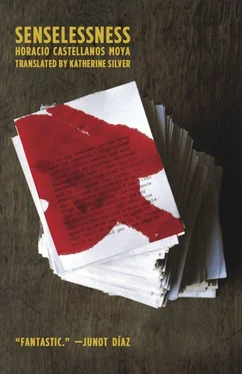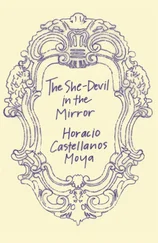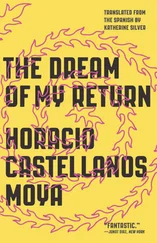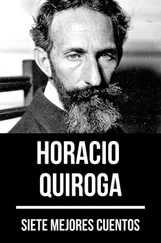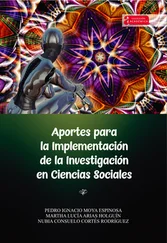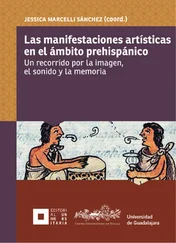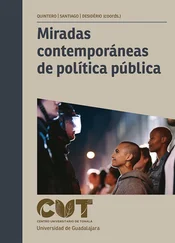Horacio Castellanos Moya - Senselessness
Здесь есть возможность читать онлайн «Horacio Castellanos Moya - Senselessness» весь текст электронной книги совершенно бесплатно (целиком полную версию без сокращений). В некоторых случаях можно слушать аудио, скачать через торрент в формате fb2 и присутствует краткое содержание. Год выпуска: 2008, Издательство: Senselessness, Жанр: Современная проза, на английском языке. Описание произведения, (предисловие) а так же отзывы посетителей доступны на портале библиотеки ЛибКат.
- Название:Senselessness
- Автор:
- Издательство:Senselessness
- Жанр:
- Год:2008
- ISBN:нет данных
- Рейтинг книги:3 / 5. Голосов: 1
-
Избранное:Добавить в избранное
- Отзывы:
-
Ваша оценка:
- 60
- 1
- 2
- 3
- 4
- 5
Senselessness: краткое содержание, описание и аннотация
Предлагаем к чтению аннотацию, описание, краткое содержание или предисловие (зависит от того, что написал сам автор книги «Senselessness»). Если вы не нашли необходимую информацию о книге — напишите в комментариях, мы постараемся отыскать её.
Senselessness — читать онлайн бесплатно полную книгу (весь текст) целиком
Ниже представлен текст книги, разбитый по страницам. Система сохранения места последней прочитанной страницы, позволяет с удобством читать онлайн бесплатно книгу «Senselessness», без необходимости каждый раз заново искать на чём Вы остановились. Поставьте закладку, и сможете в любой момент перейти на страницу, на которой закончили чтение.
Интервал:
Закладка:
For a few seconds, before I took off like a shot, I enjoyed that hour in the afternoon when the sun had not yet set, the transparent light, a warm breeze blowing through the streets at the same pace as my own steps, and that’s no joke, because I was walking as fast as my legs could carry me, first on one side of the street, then on the other, crossing impetuously in the middle of the block, not so much to prevent somebody from following me, how deluded could I be on such a crowded street, but rather to avoid the ambush I always feared, the one in which two pseudo-muggers — really army intelligence operatives — would corner me and stab me to steal something I didn’t have on me so the priests would finally get the message, I was a foreigner whose murder in the course of a street crime would have no repercussions. At all costs avoid the always-feared ambush: I had this goal in mind every time I went out, obsessed, electrified, just like that afternoon they didn’t pay me my advance and I threaded my way down Octava Avenida, a street stinking of piss and garbage that led from the archbishop’s palace to the central market, a dunghill behind the cathedral I walked through with long strides, constantly scanning the field — behind, in front, to the sides — as if by descrying the murderer’s face I could guarantee my escape, down a stretch of sidewalk crowded with people and street vendors, another stretch on the asphalt the old buses clambered down noisily, overusing their horns, not slowing my pace until I reached Novena Calle and turned up toward Pasaje Aycinena, my improvised destination, because before going to my apartment I wanted to have a few drinks, I wanted some distraction, and the place I picked was a shabby bar-café named Las Mil Puertas, which, despite the name, had only two doors, not a thousand, territory of recycled communists but above all frequented by young men and women with artistic inclinations, bohemians, rebels perhaps, in any case an ambience as different from the archbishop’s palace as could be, tender slabs of young flesh to lift my spirits, I told myself once I was inside and sitting at the corner table, ready to order a soda to catch my breath, because in that joint they served flat water, which I prefer, from the tap, a dangerous circumstance I’d learned about during my previous visits, when I had also sat at the corner table where the walls were marked up with those horrible verses written by mediocre left-wing poets, hawkers of hope, verses written without humility, in big prison-style lettering, but even so, a table that was preferable to those outside, along the Pasaje Aycinena, a deserted walkway that led from Novena Calle to the entrance of Parque Central. So I ordered a whisky with soda and set about clearing my head of all mental associations related to my work at the palace, just as my buddy Toto had advised me to do, taking note instead of every single one of the girls in this bar-café, the good-looking ones, of course, who were few in number but enough to distract me, one of them in particular, a thin girl with lively eyes, oriental eyebrows, and a laugh that was flirtatious for being somewhat timid, whose features sparked my imagination so powerfully that I could picture, within seconds, as I rubbed the palms of my hands against my eyes, that girl’s face as she was being possessed, penetrated, shaken by my rhythmic assault, and I could also see her expression of total abandon at the moment of orgasm and almost hear her plaintive moans, like a satisfied cat, an exercise in fantasy that managed to stabilize my mood and even generated a weak current through my groin, nothing to worry about, even less so now that they had brought me my whisky and soda and after relishing the delightful tickle of that first sip, I finally recovered my equilibrium and relaxed, capable now of observing the flow of my thoughts while remaining separate from them, not identifying with them, as if they were somebody else’s mental movie I was watching with a certain amount of indifference, a mood propitious for achieving spiritual peace but which I couldn’t hold on to for as long as I wanted due to the arrival of a group of persons whom I identified at first glance as belonging to the office I had recently fled and which at that moment I didn’t want to remember anything about, a truly impertinent interruption, for their appearance not only shook me abruptly out of my mood but also forced me to ask myself what the hell I was doing with my life, committing myself to such a project and having to dash madly around a foreign city, which is what I had just done by taking the longest route so as to throw off any possible pursuers, according to my thinking, as if in the end I wasn’t going to find my way to this joint where any wretch could nab me if he wanted to. But I wasn’t going to allow that group of so-called defenders of human rights to ruin my whisky for me, I told myself as I took another sip, and I proceeded to take my notebook out of the inner pocket of my jacket intent on calmly relishing those sentences that seemed so astonishing from a literary point of view, an observation I would never again share with insensitive poets like my buddy Toto, sentences I could, with luck, later use in some kind of literary collage, but which surprised me above all for their use of repetition and of adverbs, such as this one that said, What I think is that I think. . Wow. And this one, So much suffering we have suffered so much with them. . : its musicality perplexed me when I first read it, its poetic quality too high not to suspect that it came from some great poet rather than from a very old indigenous woman who with this verse had brought to an end her wrenching testimony, which wasn’t the point at the moment. Both sentences should have been written on the walls of this bar-café instead of those horrible verses by leftist poetasters, I thought as I put away my notebook, asked the waitress for the check, and took one last look at the girl with oriental eyebrows whose face had fired up my imagination. Upon leaving I walked right by the table where my colleagues were sitting, though I refrained from greeting them, still irritated by their inopportuned appearance, and they didn't greet me either though there passed between us one or another look of recognition.
FOUR
BINGO: I FINALLY FOUND A good-looking girl. Allow me to clarify: she was no Demi Moore, but she had all her parts in all the right places, was well-proportioned, had fine features and a healthy expression, without that resentment so typical of those ugly doyens of messianic causes who thronged the archbishop's palace, a girl born in Toledo, Spain, who had spent most of her life in Madrid, in the Salamanca neighborhood, which is no slum, and whose father was a well-known military physician, an admirer of Generalísimo Franco, whom he served under, she told me, but not when we first started talking, obviously nobody introduces themselves like that, much less so in the courtyard of the archbishop's palace, full of so many so-called guardians of human rights, where she was reading and soaking up a little mountain sunshine, sitting on the rim of the stone fountain. An apparition! I said to myself, Lord in Heaven! as I walked down the corridor toward the kitchen to get a cup of coffee, but there and then changed my direction toward that apparition, next to which I sat down, introduced myself without any preambles, and immediately asked her where had she been hiding all week, how was it possible that I hadn’t seen her, hadn’t even known of her existence until that very moment. She told me her name was Pilar, otherwise known as Pilarica, a graduate in psychology from the Complutense University of Madrid, for the past five months working under the supervision of my friend Erick in the archbishop’s palace but also in indigenous communities in the province of Alta Verapaz, where she had been the previous week, that’s why we hadn’t met. A few hours later, at noon, we walked together through the large wooden door on our way to a vegetarian restaurant located in front of the bandstand in Parque Central, conversing in a relaxed fashion, the first time I had left the archbishop’s palace with someone else and without the devil nipping at my heels, a pleasure no matter how you looked at it, walking along and chatting calmly with an attractive girl, a foreigner and apparently intelligent, who moreover worked most of the time just a few feet from my office and with whom I could easily establish a closer relationship, too good to be true, as I soon discovered, for we hadn’t even reached the vegetarian restaurant when I began to detect certain expressions that made me suspect that my delightful companion might be a fanatic of that nonsense called political correctness, which put me slightly on my guard and thereafter made me think that the very fact that we were about to enter a vegetarian restaurant already constituted one alarming symptom, for only a mind accustomed to absurd abstractions and fashionable activism could prefer that insipid food to a good cut of tender juicy meat, which is why so far I hadn’t dared ask her why she had chosen that restaurant for our first meal together, hoping she would allege some digestive ailment resulting from her sojourn in inhospitable regions, but no, just as I feared, once we were seated in that environment infused with a certain sect-like air, which I immediately perceived, Pilar began her diatribe against meat, which was not only repulsive to her but also very unhealthy, enumerating the various harmful, even deadly, effects of ingesting meat, with a lexicon and an emphasis appropriate for the daughter of a military physician and Franco supporter turned savior of indigenous peoples, which is what she did on her trips to the countryside, she met with indigenous communities, victims of the atrocities committed by the armed forces, to help them overcome the trauma they were suffering as a result of not being able to go through the traditional mourning rites, she explained to me, for the worst thing was the absence of cadavers for sinister reasons, which prevented people from carrying out any mourning rituals, as a result of which they suffered all sorts of disorders, something I was already familiar with, as I told her, that’s what the report’s all about, so familiar that I proceeded to take my notebook out of the pocket of my corduroy blazer to read her a few remarkable sentences related to the subject she had just brought up, and I placed it on the table, open, next to my plate of soup: My children say: Mama, my poor Papa where might he be, maybe the sun passes over his bones, maybe the rain and the air, where might he be? As if my poor Papa he was an animal. This is sorrow. . , I read between spoonfuls, and then I looked for a sentence that had electrified me that very morning: The pigs they are eating him, they are picking over his bones. . , I enunciated as I reached for my glass of myrtle juice, because they didn’t serve beer at that restaurant, a sip of something to soothe my throat so I could continue reading the sentence, I want to see at least his bones , but at that moment I perceived that Pilar was not enjoying my sentences, the astonished expression on her face indicated as much, as did her stillness, so I decided to close my notebook but not before reading, only to myself, the last of the sentences that I would have liked to share with her, which said, While the cadavers they were burning, everyone clapped and they began to eat . .
Читать дальшеИнтервал:
Закладка:
Похожие книги на «Senselessness»
Представляем Вашему вниманию похожие книги на «Senselessness» списком для выбора. Мы отобрали схожую по названию и смыслу литературу в надежде предоставить читателям больше вариантов отыскать новые, интересные, ещё непрочитанные произведения.
Обсуждение, отзывы о книге «Senselessness» и просто собственные мнения читателей. Оставьте ваши комментарии, напишите, что Вы думаете о произведении, его смысле или главных героях. Укажите что конкретно понравилось, а что нет, и почему Вы так считаете.
